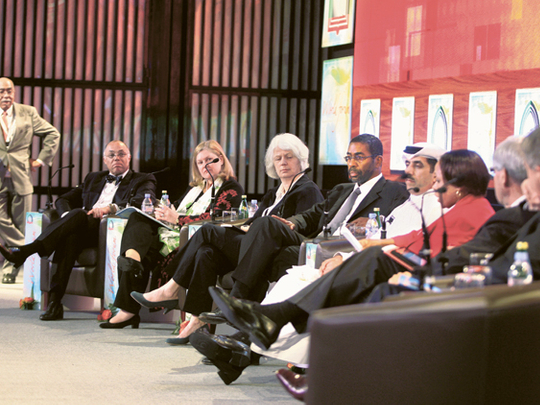
Dubai: New and innovative approaches to how the human brain processes new information in an age of over-stimulation is key to improving education techniques and pedagogy, an education expert said on Tuesday.
Dr Keith Black, Chairman of the Department of Neurosurgery at Cedars-Sinai Medical Centre in the US spoke at the World Forum of the 10th annual Education Without Borders conference.
During a panel discussion about fostering access and empowerment to education he said: "If you look at the way young people get information today, they are constantly bombarded with huge amounts of it.
"If we learn how to focus the information running into young minds while we learn how the human brain actually learns, we can make significant strides in improving education methodology."
Personalised medicine
Black drew from his medical background in giving an analogy of the practice of personalised medicine and related it to accessing education by students from different parts of the world.
"A girl in a rural village, who hauls gallons of water daily back and forth for her family, faces different challenges from one living in Beverly Hills."
He added that it was such elements which need to be considered when trying to find innovative solutions for access to education in various parts of the world.
Dr Ebrahim Al Nuaimi, Director of the Community College of Qatar, added that students across the world with access to quality education have a duty towards those who do not.
"Students across the world who have opportunities for good education do not really pay attention to those who do not," said Al Nuaimi. "However, to have a balance there should be significant promotion of international mindedness in all our students."
Such international perspectives, Al Nuaimi believes, will foster greater active community service and voluntary projects in impoverished areas with poor access to education.
He added that students hailing from disadvantages communities, who mainly go through public schooling and university systems, need adequate training in order to compete in the jobs market.
"Students from disadvantaged communities usually study at public institutions which need to drastically improve the quality of education they provide," said Al Nuaimi.
The overhaul of education systems in developing countries to promote enquiry-based learning and active student engagement is what will raise education standards across the board.












